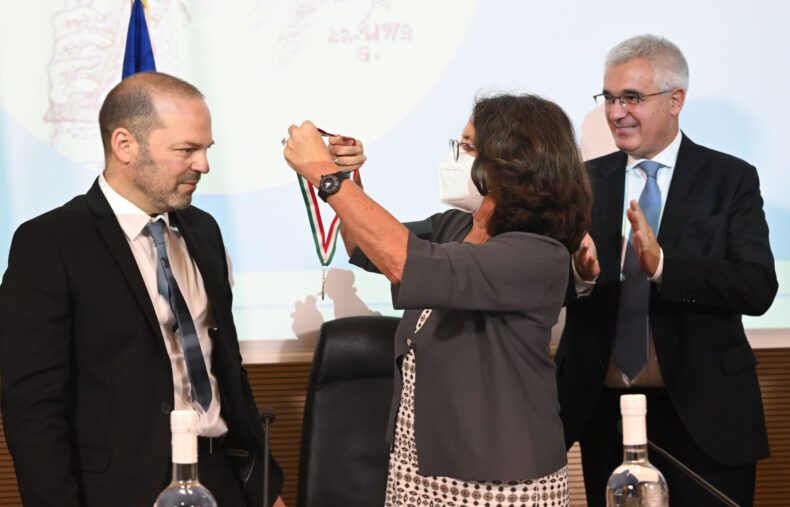“Agriculture, Italy and Israel together to deal with the challenges of the future”

“To deal with the challenges of the future, agriculture will have to rely on the application of knowledge and scientific technologies. We’ll have to be able to produce more, with more limited resources, and to obtain quickly the necessary answers, we have to accelerate”. It is an appeal, but also a reminder, that launched by Israeli geneticist Assaf Distelfeld at the ceremony for the Rita Levi-Montalcini Prize for Scientific Cooperation between Italy and Israel celebrated last week at the Farnesina.
The Levi-Montalcini Prize, a symbol of the scientific cooperation between Israel and Italy, was made for his research project in the sector of genome technologies for sustainable agriculture: “Comparative Analysis of seed growth regulating factors in wheat and barley”. The project was presented in cooperation with Erica Mica, from the Council for Agricultural Research and Economics (CREA).
A plant geneticist, Prof. Distenfeld, appointed director of the Institute of Evolution at the University of Haifa in 2020, changed the wheat genome using an innovative approach. His studies focus on improving the yields and quality of cultivars, and in particular those of wheat, one of the crops of greatest importance to humanity.
The research, explained Distelfeld and Mica, aims at characterizing the genetic determinants regulating the seed dimension in barley and wheat and will have important scientific and technological repercussions for varietal innovation. Specifically, the focus is on a gene able to increase the dimension of the seed already identified by the Israeli scientist in wild spelt and analyzed through genome editing in barley and wheat by the Italian colleague.
The award adds new momentum to joint research projects by the two countries in the field of technologies for sustainable agriculture, and to give his applause to this collaboration, in one of its first public outings, was the new ambassador of Israel Alon Bar. “This recognition – his words – comes with perfect timing given the global challenges we face: climate change, water scarcity, food security, energy security, and the conflict resulting from the Russian invasion of Ukraine. All this reminds us of the need for global cooperation to find common solutions”. A front on which Israel can make a great contribution, added the diplomat, “thanks to its vibrant scientific community and a strong spirit of innovation. I think that together with Italy we can still give a lot”.
Funded by the Farnesina’s Directorate General for Country Promotion and promoted in collaboration with the Ministry of Universities and Research and the Conference of Italian University Rectors (CRUI), the Rita Levi-Montalcini Prize aims to foster exchanges between distinguished scholars in Italy and Israel. Awarded annually, the prize covers board and accommodation costs for an Israeli scientist to visit an Italian university or research center to develop a joint research program lasting four to six months.
“This is one of the most significant initiatives of the Cooperation agreement in industrial and scientific-technological research between our two countries”, declared Deputy Foreign Minister Sereni. “The agreement is a ‘feather in the cap’ of our scientific diplomacy. We have used this instrument over the years to co-finance scientific and industrial research, joint workshops and labs and science and technology events. Each year, the prize provides a new impetus to collaboration between Italy and Israel on the most topical scientific research issues. We are therefore particularly pleased to constantly renew its spirit and auspices in the memory of Professor Rita Levi-Montalcini, whose life continues to be a source of inspiration for us all”.
The collaboration with the CREA, Italy’s foremost agricultural research body, will seek to develop new cereal varieties for agriculture, a sector that at present is being heavily affected by climate change.
